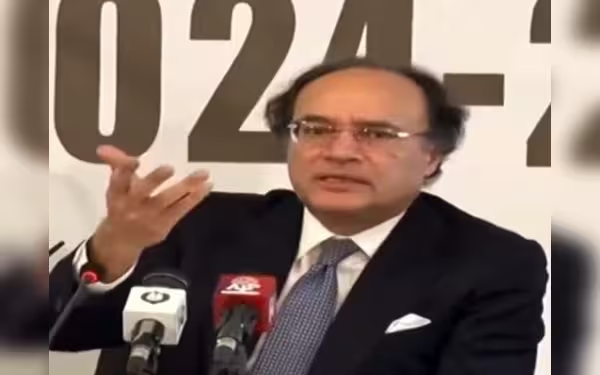Tuesday, July 2, 2024 04:52 PM
PM Shehbaz Sharif reshapes Ecnec leadership for economic decisions
- PM takes over Ecnec chairmanship, excluding key ministers
- Increased development budget allocation prompts additional taxation measures
- Ecnec's role crucial in approving mega projects for sustainable growth
 Image Credits: tribune_pk
Image Credits: tribune_pkPrime Minister Shehbaz Sharif's recent changes to Ecnec leadership signal a strategic shift in Pakistan's economic decision-making. The restructuring aims to enhance oversight on development projects for inclusive growth and sustainable development.
Prime Minister Shehbaz Sharif has recently made significant changes to the Executive Committee of the National Economic Council (Ecnec), a crucial body responsible for economic and development plans in Pakistan. The PM has decided to chair Ecnec himself, replacing Finance Minister Muhammad Aurangzeb from the chairmanship role. The committee will now include Ishaq Dar, Muhammad Aurangzeb, and Planning Minister Ahsan Iqbal as members.
Ecnec, which plays a vital role in shaping the country's economic policies, will witness the exclusion of the ministers for communication and commerce to make room for the PM and the foreign minister. With a total of eight members representing both the central and provincial governments, Ecnec ensures a balanced decision-making process for key development projects.
This move marks a significant shift in leadership dynamics, as Aurangzeb has previously been overlooked for chairmanship positions in important economic decision-making bodies. Notably, Ishaq Dar was appointed as the chairman of the Cabinet Committee on Privatisation, despite his membership in Ecnec.
Prime Minister Shehbaz Sharif's active involvement in economic matters is evident through his chairing of the Economic Coordination Committee (ECC) and now Ecnec. The upcoming projects awaiting Ecnec's approval, such as the Mainline-I railway project and the Karakoram Highway project, highlight the committee's crucial role in steering the country's development agenda.
A recent debate within the finance ministry regarding federal development spending for the next fiscal year saw the PM stepping in to increase the allocation to Rs1.4 trillion. This decision, while aimed at boosting development initiatives, also led to additional taxation measures affecting sectors like salaried individuals, milk sales, cement, and real estate.
Ecnec's role as a gatekeeper for approving mega projects without proper evaluation underscores the importance of responsible allocation of the development budget. With 19% of the upcoming fiscal year's development budget earmarked for new schemes, the government aims to ensure efficient utilization of resources for sustainable growth.
The restructuring of Ecnec under Prime Minister Shehbaz Sharif's leadership signifies a strategic shift in economic decision-making processes in Pakistan. By prioritizing responsible allocation of resources and enhancing oversight on development projects, the government aims to drive inclusive growth and sustainable development across the country.













